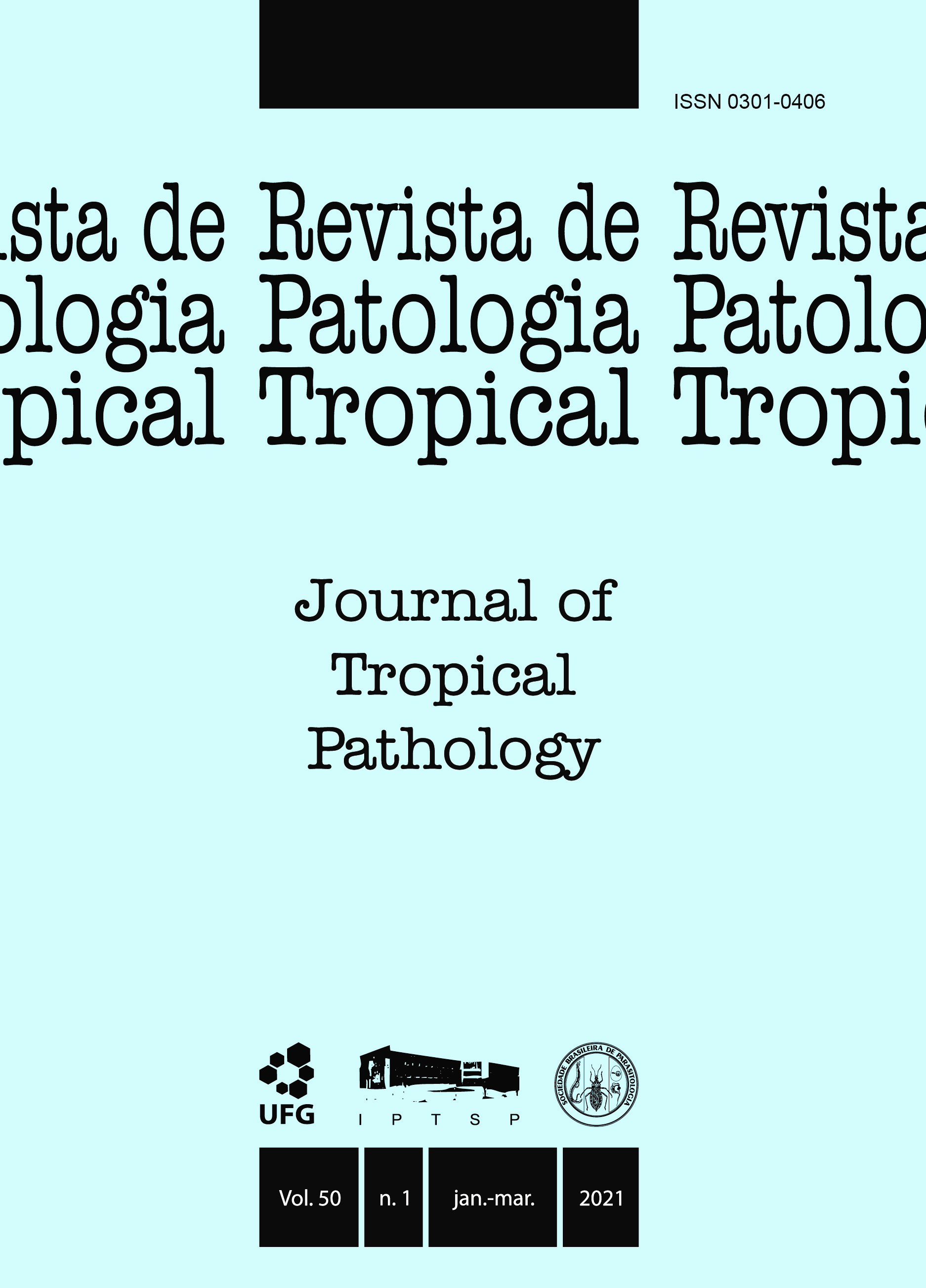Soil contamination by zoonotic parasites in leisure areas: an integrative review
DOI:
https://doi.org/10.5216/rpt.v50i1.68593Abstract
Enteropasites are a risk to both human and animal health, and soil is an important route for their propagation and perpetuation, due to the easy animal access to leisure environments. Furthermore, the contamination of these areas is a public health problem, due to the high number of people who visit these places and can acquire these parasitoses. The purpose of this study was to research information described in the scientific literature on the prevalence
of parasites with zoonotic potential in leisure areas, their distribution and associated factors. This is an integrative review of the literature in which scientific studies on parasites of zoonotic potential in leisure areas were selected from the Virtual Health Library, with MEDLINE and LILACS as its database, in addition to PUBMED, SCIELO and “Periódicos Capes” published between 2010 and 2020 in Portuguese, English and Spanish. Eleven articles were selected
from the 494 found after applying criteria for inclusion, exclusion and content evaluation. Ancylostoma spp. and Toxocara spp. proved to be widely distributed, and soil contamination by parasites is directly linked to the presence of animals in these environments, due to their feces and favorable environmental conditions.
KEY WORDS: intestinal parasites; zoonoses; environmental contamination; public health.
Downloads
Downloads
Published
How to Cite
Issue
Section
License
The manuscript submission must be accompanied by a letter signed by all authors stating the full name and email address, confirming that the material has not been published or is under consideration for publication elsewhere, and agreeing to transfer copyright in all media and formats for Journal of Tropical Pathology. The authors will not be paid for published articles. They are solely responsible for the content of those articles, even if the Editor holds the right to adjust them to the norms of the journal.
The reviewers will not be paid for the peer review process.

